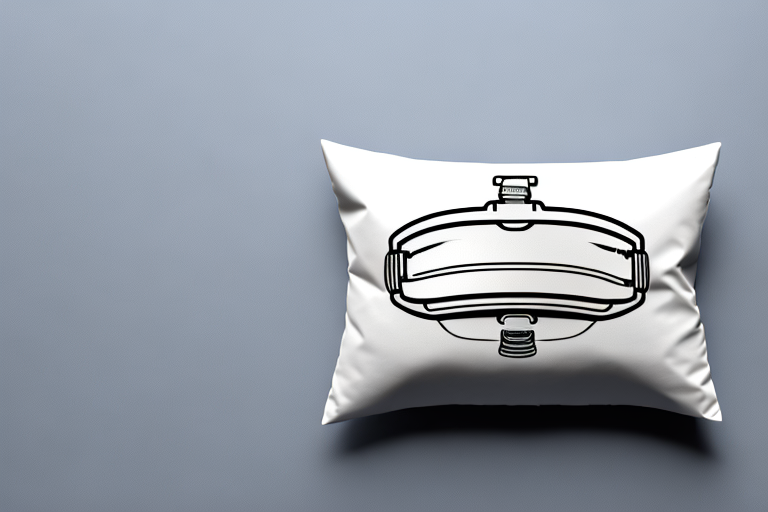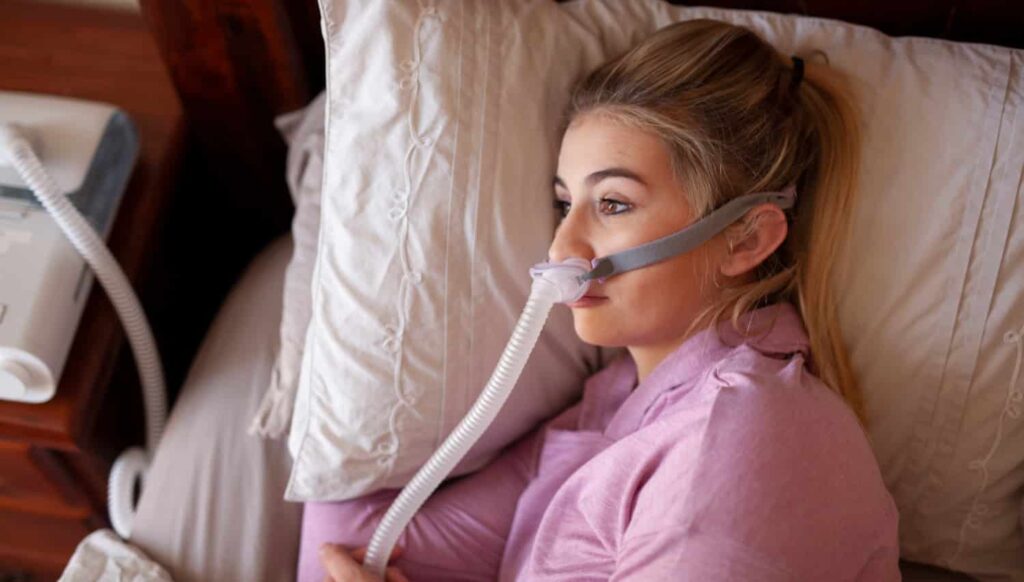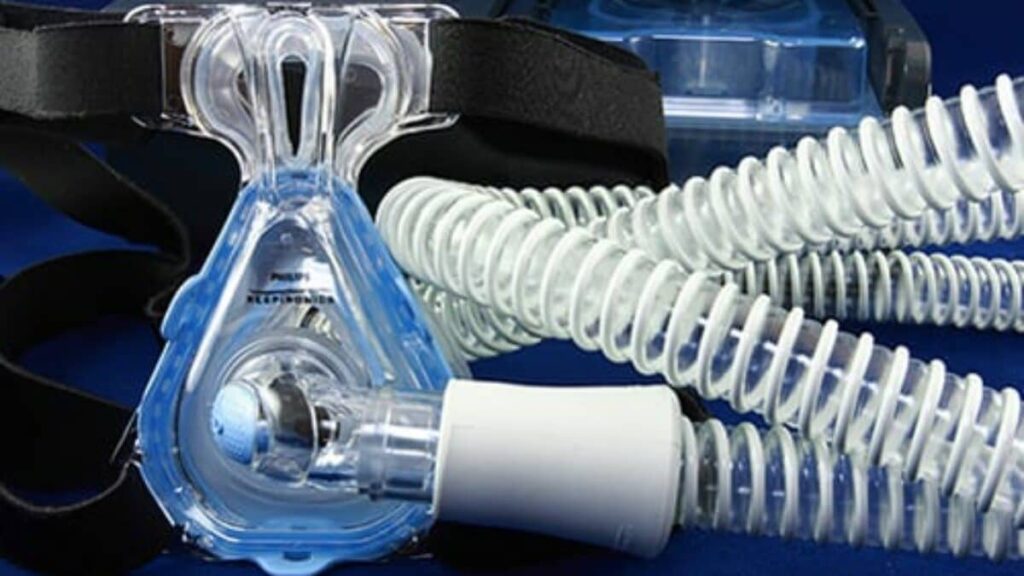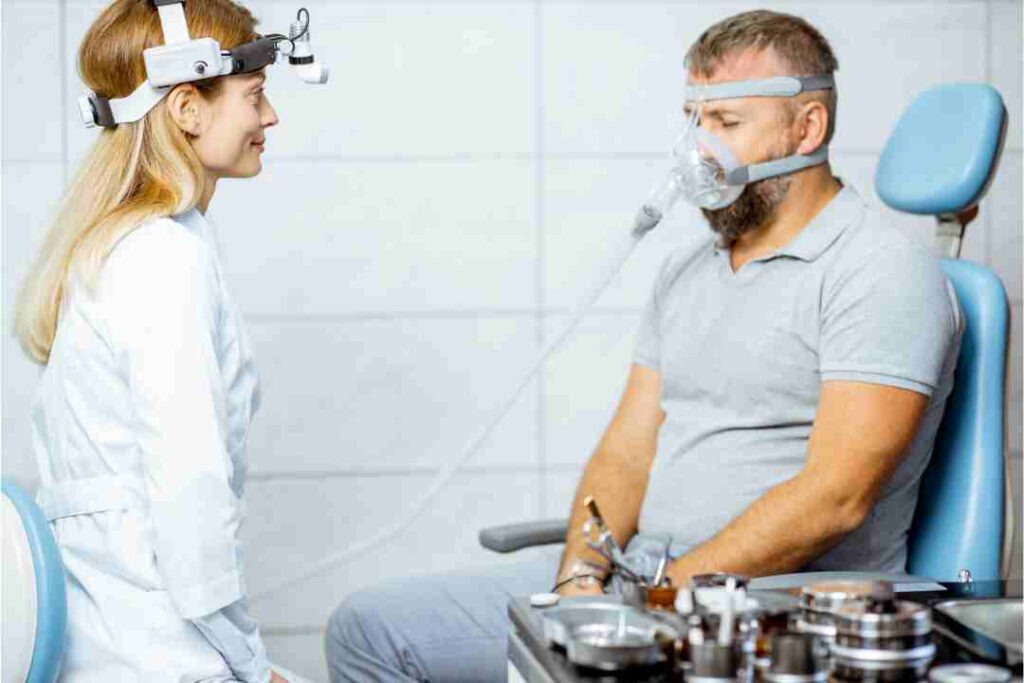In the world of sleep apnea treatment, CPAP masks play a crucial role in helping individuals breathe better and achieve a restful night’s sleep. Understanding the purpose and various styles of CPAP masks is essential for selecting the right one that suits your needs. Additionally, proper usage, maintenance, and overcoming challenges will ensure that your CPAP therapy is effective and comfortable.
Understanding the Purpose of CPAP Masks
Sleep apnea is a condition characterized by interruptions in breathing during sleep, leading to poor sleep quality and potential health risks. It affects millions of people worldwide and can have a significant impact on their daily lives. Fortunately, there are various treatment options available, and one of the most common and effective treatments is CPAP, which stands for Continuous Positive Airway Pressure.
CPAP machines are designed to deliver a gentle flow of pressurized air to the individual’s airway, ensuring that it remains open throughout the night. This is achieved through the use of CPAP masks, which play a crucial role in the effectiveness of the treatment.
The Role of CPAP Masks in Sleep Apnea Treatment
CPAP masks act as a conduit, delivering the pressurized air from the machine directly to your airway. They come in various shapes and sizes to accommodate different individuals’ needs and preferences. Some masks cover only the nose, while others cover both the nose and mouth. The choice of mask depends on factors such as comfort, breathing patterns, and the severity of the sleep apnea.
These masks are carefully designed to create a secure seal around the individual’s face, ensuring that the pressurized air is delivered effectively and without leakage. The masks are adjustable, allowing users to find the perfect fit that maximizes comfort and minimizes any potential discomfort or irritation.

How CPAP Masks Improve Breathing
By maintaining a constant positive pressure in your airway, CPAP masks help improve breathing by preventing the collapse of soft tissues in your throat. During sleep apnea episodes, the airway becomes partially or completely blocked, leading to pauses in breathing. This can result in loud snoring, gasping for air, and disrupted sleep.
When the CPAP machine is used with a mask, the pressurized air acts as a splint, keeping the airway open and allowing for uninterrupted breathing. This not only reduces the frequency of apnea events but also promotes healthier oxygen levels in your body. With improved oxygenation, individuals experience better sleep quality, increased energy levels, and improved overall well-being.
It is important to note that finding the right CPAP mask is crucial for the success of the treatment. A mask that fits poorly or causes discomfort may discourage consistent use, reducing the effectiveness of the therapy. Therefore, it is recommended to work closely with a healthcare professional to select a mask that suits your needs and ensures optimal comfort.
In conclusion, CPAP masks play a vital role in the treatment of sleep apnea. By delivering pressurized air to the airway, they help maintain an open and unobstructed passage for breathing. This leads to improved sleep quality, reduced health risks, and an overall improvement in the individual’s well-being. If you suspect that you may have sleep apnea, it is essential to consult with a healthcare professional who can guide you through the diagnosis and treatment process.
The Various Styles of CPAP Masks
CPAP masks come in various styles to cater to individual preferences and breathing habits. Each style serves a unique purpose and offers distinct benefits. Understanding the different options will help you choose the most suitable CPAP mask for your needs.
Full Face CPAP Masks
Full face CPAP masks cover both the nose and mouth, making them ideal for individuals who breathe through their mouth or experience frequent nasal congestion. These masks provide a secure seal and ensure effective air delivery, even for mouth breathers. The wide coverage also reduces the likelihood of air leaks and enhances overall comfort during sleep.
One of the advantages of full face CPAP masks is that they allow individuals to breathe through their mouth without any obstruction. This is especially beneficial for those who have a habit of breathing through their mouth during sleep. The mask’s design ensures that the air pressure is delivered effectively, regardless of whether the individual breathes through their nose or mouth.
In addition, full face CPAP masks are a great option for individuals who experience frequent nasal congestion. By covering both the nose and mouth, these masks provide a continuous flow of air, ensuring that individuals receive the necessary therapy even if their nasal passages are blocked. This can be particularly helpful for individuals with allergies or sinus issues. Visit https://galaxybraintrust.org/customer-reviews-real-life-experiences-with-resmed-airmini/ to read about Customer Reviews: Real-Life Experiences with ResMed AirMini.

Nasal CPAP Masks
Nasal CPAP masks cover only the nose, making them a popular choice for individuals who prefer a more lightweight and minimalistic design. These masks offer a secure seal around the nose, ensuring effective air delivery. Nasal masks are particularly suitable for individuals who breathe through their nose or experience minimal mouth leaks.
One of the key advantages of nasal CPAP masks is their lightweight and compact design. These masks are generally smaller and less bulky compared to full face masks, making them more comfortable to wear. The reduced size also means less contact with the face, which can be beneficial for individuals who are sensitive to pressure or have claustrophobic tendencies.
Nasal CPAP masks are also a great option for individuals who primarily breathe through their nose. The mask’s design focuses on delivering the air pressure directly to the nasal passages, ensuring effective therapy. Additionally, individuals who experience minimal mouth leaks during sleep can benefit from the focused airflow provided by nasal masks.
Nasal Pillow CPAP Masks
Nasal pillow CPAP masks are the smallest and least intrusive option available. These masks feature soft, cushion-like inserts that fit directly into your nostrils. Nasal pillow masks are a great choice for individuals who feel claustrophobic or prefer minimal facial coverage. They provide a secure seal and offer a high level of comfort.
One of the standout features of nasal pillow CPAP masks is their minimalistic design. These masks consist of small inserts that fit directly into the nostrils, eliminating the need for a larger mask that covers the nose or mouth. This design provides individuals with a sense of freedom and allows for a more natural sleeping experience.
Individuals who feel claustrophobic or uncomfortable with traditional CPAP masks often find nasal pillow masks to be a suitable alternative. The small size and minimal facial coverage make these masks less obtrusive, allowing individuals to move more freely during sleep. The soft cushion-like inserts also enhance comfort, reducing the likelihood of pressure points or skin irritation.
Despite their small size, nasal pillow CPAP masks still provide a secure seal and effective air delivery. The inserts fit snugly into the nostrils, ensuring that the air pressure is delivered directly to the nasal passages. This focused airflow can be particularly beneficial for individuals who primarily breathe through their nose.
Factors to Consider When Choosing a CPAP Mask
When selecting a CPAP mask, several factors need to be considered to ensure a comfortable and effective therapy experience. Taking these factors into account will help you find the most suitable mask for your individual needs.
Comfort and Fit
A well-fitting CPAP mask is essential for a comfortable and effective therapy experience. Consider factors such as the cushion material, headgear adjustments, and mask size to ensure a proper fit that minimizes discomfort and leaks.
When it comes to cushion material, there are various options available, including silicone, gel, and foam. Each material has its own unique properties, such as softness, flexibility, and durability. Some individuals may prefer the cushioning provided by silicone, while others may find gel or foam to be more comfortable.
Headgear adjustments play a crucial role in achieving a proper fit. Most CPAP masks have adjustable straps that allow you to customize the tension and positioning of the headgear. It is important to find the right balance between a snug fit that prevents leaks and excessive tightness that may cause discomfort or pressure marks.
Mask size is another important consideration. CPAP masks come in different sizes to accommodate various facial structures. It is recommended to consult with a healthcare professional or try on different sizes to determine the most suitable option for your face shape and size.
Personal Breathing Habits
Understanding your breathing patterns is crucial when selecting a CPAP mask. If you primarily breathe through your mouth, a full face mask or nasal mask with a chin strap may be suitable. These masks cover both the nose and mouth, ensuring that the pressurized air from the CPAP machine reaches your airways effectively.
On the other hand, if you primarily breathe through your nose, a nasal or nasal pillow mask may be the better choice. These masks cover only the nose, allowing for a more lightweight and less obstructive experience. Nasal pillow masks, in particular, have small inserts that rest against the nostrils, providing a comfortable and secure fit.
It is important to note that some individuals may switch between breathing through their nose and mouth during sleep. In such cases, a hybrid mask that combines features of both full face and nasal masks may be a suitable option.

Lifestyle and Mobility Needs
Consider your lifestyle and mobility needs when choosing a CPAP mask. If you lead an active lifestyle or travel frequently, a more compact and portable mask may be preferable. Look for masks that are lightweight, easy to disassemble, and come with a travel-friendly carrying case.
Additionally, features such as quick-release headgear or magnetic clips can make mask removal and reapplication easier. These convenient mechanisms allow you to quickly detach the mask from the headgear without having to readjust the straps each time. This can be particularly beneficial for individuals who need to remove their mask frequently, such as during bathroom breaks or when using a CPAP machine with a built-in humidifier.
Furthermore, some masks offer additional features such as built-in exhalation ports that diffuse the airflow, reducing noise and directing the expelled air away from you and your partner. This can contribute to a more peaceful and undisturbed sleep environment.
By considering your comfort, fit, breathing habits, and lifestyle needs, you can make an informed decision when choosing a CPAP mask. Remember, finding the right mask is essential for a successful CPAP therapy experience, so take the time to explore different options and consult with a healthcare professional if needed.
Proper Usage and Maintenance of CPAP Masks
Proper usage and maintenance of your CPAP mask are vital for ensuring optimal therapy effectiveness and prolonging its lifespan. Here are some essential tips to help you get the most out of your CPAP mask.
Cleaning and Replacing Your CPAP Mask
Regular cleaning of your CPAP mask is crucial to maintain hygiene and prevent the build-up of bacteria. Follow the manufacturer’s instructions for cleaning and replacing the mask components, such as the cushion, headgear, and tubing, to ensure effective therapy and prevent potential skin irritations.
Ensuring a Proper Fit for Optimal Therapy
An ill-fitting CPAP mask can lead to discomfort and air leaks, compromising the effectiveness of your therapy. Periodically check the fit of your mask and readjust the straps as needed. It is essential to replace worn-out components promptly to maintain a proper seal and promote optimal therapy benefits.
Overcoming Common Challenges with CPAP Masks
While CPAP masks are highly effective, some individuals may face challenges during their therapy journey. Understanding and addressing these challenges can help ensure a smoother and more comfortable experience.
Dealing with Mask Discomfort
If you experience discomfort with your CPAP mask, it is important to identify the cause and make necessary adjustments. Consider trying different cushion materials, adjusting the headgear tension, or exploring alternative mask styles to find the most comfortable option for you.
Addressing Common CPAP Mask Problems
Some common problems associated with CPAP masks include air leaks, skin irritations, and difficulty adjusting to wearing the mask. Consult with your healthcare provider or CPAP supplier for troubleshooting tips and recommendations. They can help you make necessary adjustments or suggest alternative mask options to address these issues.In conclusion, understanding the purpose, styles, and factors to consider when choosing a CPAP mask is crucial for effective sleep apnea treatment. By ensuring proper usage, maintenance, and addressing potential challenges, you can optimize your CPAP therapy experience and enjoy the benefits of restful, rejuvenating sleep. So take the time to explore the different styles of CPAP masks and find the one that best suits your needs and preferences.
More to read: The Science Behind the Design of CPAP Masks for Sleep Apnea

